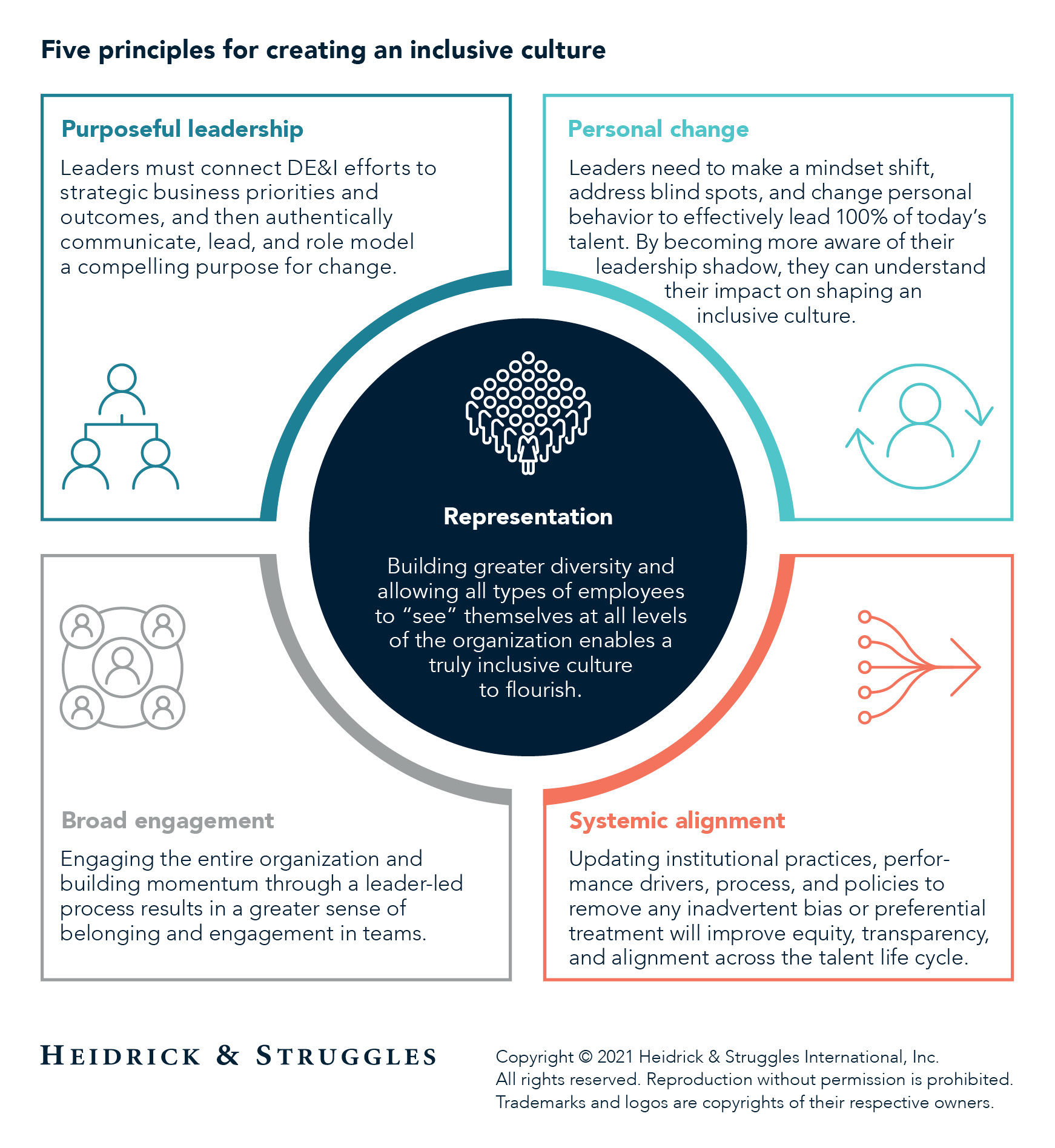Embracing Diversity: The Key to Success
In today’s rapidly changing and interconnected world, businesses are increasingly recognizing the importance of building an inclusive business culture. Embracing diversity is not only the right thing to do, but it is also the key to success in the modern workplace.
Diversity encompasses a wide range of differences, including but not limited to race, ethnicity, gender, age, sexual orientation, and physical abilities. By embracing diversity in all its forms, businesses can tap into a wealth of perspectives, experiences, and ideas that can drive innovation, creativity, and growth.
One of the most important reasons to embrace diversity is that it helps businesses better understand and serve their diverse customer base. By having a workforce that reflects the diversity of their customers, businesses can more effectively communicate with and meet the needs of a wide range of people. This can lead to increased customer satisfaction, loyalty, and ultimately, business success.
In addition to better serving customers, embracing diversity also helps businesses attract and retain top talent. In today’s competitive job market, employees are looking for workplaces that value and respect their differences. By creating an inclusive business culture that celebrates diversity, businesses can attract a diverse pool of candidates and retain employees who feel valued and respected.

Image Source: heidrick.com
Furthermore, embracing diversity fosters a culture of creativity and innovation. When employees from different backgrounds, perspectives, and experiences come together, they bring a variety of ideas and approaches to problem-solving. This diversity of thought can lead to more creative solutions, better decision-making, and ultimately, greater success for the business.
Building an inclusive business culture requires more than just hiring a diverse workforce. It also involves creating a workplace where all employees feel welcome, respected, and valued. This means providing training and education on diversity and inclusion, implementing inclusive policies and practices, and fostering an environment where all employees feel empowered to speak up and share their ideas.
Ultimately, embracing diversity is not just a moral imperative – it is also a smart business strategy. Businesses that prioritize diversity and inclusion are better positioned to succeed in today’s global marketplace. By embracing diversity, businesses can better understand and serve their diverse customer base, attract and retain top talent, foster creativity and innovation, and create a more inclusive and successful workplace culture.
Fostering Inclusivity in the Workplace
In today’s rapidly changing world, the importance of building an inclusive business culture cannot be overstated. Fostering inclusivity in the workplace is not just a feel-good initiative – it is crucial for the success and sustainability of any organization. Inclusivity goes beyond just hiring a diverse workforce; it means creating an environment where every individual feels valued, respected, and included.
One of the key reasons why fostering inclusivity in the workplace is so important is that it leads to increased innovation and creativity. When employees from different backgrounds, experiences, and perspectives come together, they bring a wealth of ideas and insights to the table. This diversity of thought can lead to more innovative solutions, better decision-making, and ultimately, a competitive edge in the market.
Moreover, an inclusive business culture leads to higher employee engagement and retention. When employees feel like they belong and are valued for who they are, they are more likely to be motivated, productive, and committed to their work. This sense of belonging also fosters a sense of loyalty towards the organization, reducing turnover rates and saving on recruitment and training costs.
Inclusivity in the workplace also leads to improved collaboration and teamwork. When employees feel included and respected, they are more likely to work together effectively towards common goals. This can lead to better communication, stronger relationships, and ultimately, higher levels of performance and productivity.
Furthermore, fostering inclusivity in the workplace is essential for attracting and retaining top talent. In today’s competitive job market, employees are looking for more than just a paycheck – they want to work for organizations that value diversity and inclusion. Companies that prioritize inclusivity are more likely to attract a diverse pool of candidates and have their pick of the best and brightest talent.
Building an inclusive business culture also has a positive impact on the bottom line. Research has shown that organizations with diverse and inclusive workforces outperform their competitors financially. This is because inclusivity leads to higher employee satisfaction, lower turnover rates, increased productivity, and ultimately, higher profits.
Inclusivity in the workplace also has a ripple effect beyond the organization itself. When employees feel included and valued, they are more likely to be positive ambassadors for the company. This can lead to a better reputation in the marketplace, increased customer loyalty, and ultimately, a stronger brand image.
In conclusion, fostering inclusivity in the workplace is not just the right thing to do – it is also the smart thing to do. Building an inclusive business culture leads to increased innovation, higher employee engagement and retention, improved collaboration and teamwork, and a stronger bottom line. By embracing diversity and creating a culture of inclusivity, organizations can create a more positive, productive, and profitable work environment for all.
Creating an Inclusive Business Culture: Why It Matters